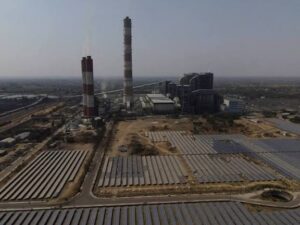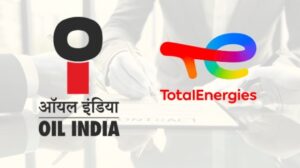Residents of Omoku, a key oil-producing town in Rivers State, will now begin paying for electricity after Oando Energy Resources Nigeria Limited (OERNL) officially discontinued the decades-long free power supply previously provided by the Nigerian Agip Oil Company (NAOC).
The decision follows Oando’s full acquisition of Agip’s Nigerian operations earlier this year and marks the end of a 30-year corporate social responsibility arrangement that had delivered uninterrupted power to homes, schools, and businesses in the Ogba/Egbema/Ndoni Local Government Area.
In a formal notice to the Omoku Council of Traditional Rulers and Chiefs dated October 30, 2025, Oando said it would no longer handle routine maintenance of the community’s power network. The company cited the expiration of a transition period outlined in the Petroleum Industry Act (PIA) 2021, which shifts oversight of community projects to Host Communities Development Trusts (HCDTs).
According to the letter, signed by Oando’s General Manager for Base and District Management, Solomon Agba, the responsibility for the network’s upkeep now lies entirely with the Ogba Host Communities Development Trust (Ogba HCDT).
This change forms part of the wider industry reforms under the PIA, which requires oil companies to contribute three per cent of their annual operating expenses to HCDTs—funds meant to be managed by local trustees for community development.
While the policy is intended to promote transparency and local ownership, many residents in Omoku are uneasy about the transition. They fear potential disruptions to power supply, citing the Ogba HCDT’s limited capacity and lack of technical expertise to manage the infrastructure.
The Nigerian Electricity Regulatory Commission (NERC) and the Nigerian Upstream Petroleum Regulatory Commission (NUPRC), both copied in Oando’s correspondence, have yet to respond publicly to the development.
Residents are expected to be migrated to the Port Harcourt Electricity Distribution Company (PHEDC) for metered power supply—an outcome that could increase costs for households and small enterprises accustomed to free service.
Oando, in a subsequent statement,e assured that it remains committed to building sustainable relationships with its host communities in line with the objectives of the PIA.
“We value our partnership with host communities and will continue supporting their development through the new trust framework,” the company said.
The move has reignited national discussions about the implementation of the Petroleum Industry Act, especially in Niger Delta communities where similar project handovers are underway. Several host communities in Bayelsa, Delta, and Imo States have voiced similar concerns about the capacity of the new structures to sustain essential services inherited from oil companies.









